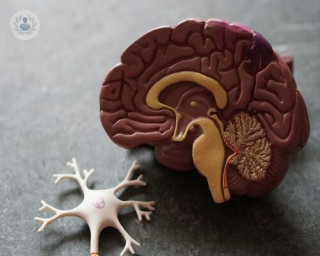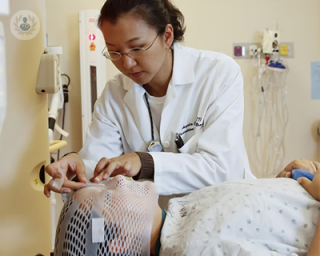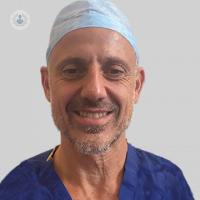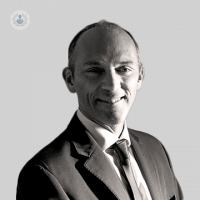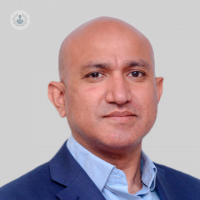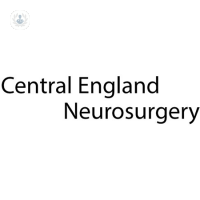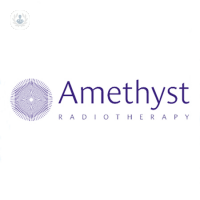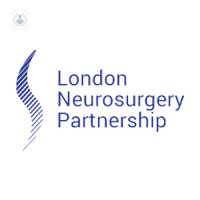Trigeminal neuralgia
Dr James Blackburn - Pain medicine
Created on: 11-13-2012
Updated on: 10-10-2023
Edited by: Carlota Pano
What is trigeminal neuralgia?
Trigeminal neuralgia is a nervous system disorder that causes a severe stabbing or electric shock type of pain in parts of the face. Although trigeminal neuralgia can affect anyone regardless of age, the condition tends to affect adults - more so women than men - between 50 and 60 years of age.
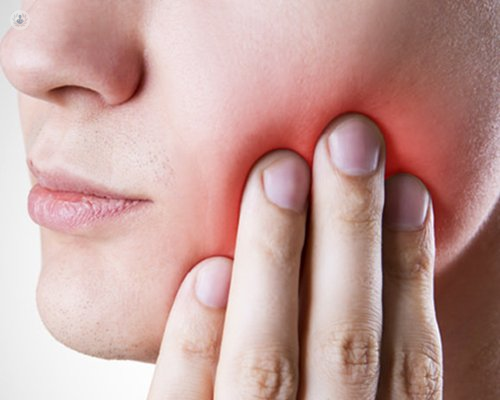
What causes trigeminal neuralgia?
The exact cause of trigeminal neuralgia is unknown. However, most of the time, trigeminal neuralgia is thought to stem from the compression of the trigeminal nerve in the head, which is responsible for sending sensations of pain from the face, eyes, paranasal sinuses and mouth, to the brain.
This compression occurs due to the pathological contact between the nerve and a blood vessel. In most cases, there is numbness, and the arteries swell up due to arteriosclerosis. This increase in size can affect the nerve and even damage it.
In other cases, symptomatic trigeminal neuralgia is thought to occur when another health condition (such as multiple sclerosis, which is a demyelinating disease) damages the trigeminal nerve. What typically happens here is damage to the myeling sheath. The pain may be bilateral (both sides of the face).
Other conditions that can affect the nerve are a tumour, a cyst, arteriovenous malformations, facial or dental injury that damage the trigeminal nerve.
Everyday actions that involve facial touch and movement can cause an attack of pain in people with trigeminal neuralgia. These can include:
- Touching of cheeks or the forehead
- Talking
- Laughing
- Brushing of teeth
- Chewing
- Swallowing
- Washing of the face
- Eating
- Kissing
Vibrations or movements in air currents, such as those of a small breeze or air conditioning, may also trigger pain.
What are the symptoms of trigeminal neuralgia?
Trigeminal neuralgia symptoms tend to be very intense facial pain that is normally unilateral (it affects only one side of the face) and lasts between one second to two minutes on average.
The pain is said to be one of the most painful things that a person can experience, with many people affected by trigeminal neuralgia describing the pain as that of an electric shock.
The pain is generally felt in the lower part of the face, including the jaw, the teeth and the cheek. It is uncommon for the pain to appear in the eyes of the forehead, but some people can feel pain there.
The episodes of pain can be recurrent and repetitive. They appear spontaneously without an identifiable trigger. Everyday actions that don't normally trigger pain can do so in people with trigeminal neuralgia. Some people can also develop a continuous small ache or burning sensation between the attacks of pain.
Can trigeminal neuralgia cause ear pain or tooth pain?
Some people with trigeminal neuralgia can experience pain in the ears and in the inside of the mouth. If the pain is felt inside of the mouth, this can feel like it is coming from the teeth, which is why some people with trigeminal neuralgia consult their dentist for tooth pain first, before visiting a doctor.
When to seek medical attention
It is important to seek medical attention if you experience frequent or recurrent facial pain. This is especially important if the pain has not been relieved by simple painkillers, such as paracetamol, and there are also no dental causes that may be responsible for the facial pain (such as an infection).
What medical tests are involved in the diagnosis of trigeminal neuralgia?
There are many tests that can be done to correctly diagnose trigeminal neuralgia.
One of the first tests that the specialist may perform is a cranial magnetic resonance tomography (MRT). This test is done because the trigeminal nerve starts at the base of the brain and passes through the base of the skull. The cause can be due to an irritation on any part of the nerve. An MRT scan can rule out certain kinds of tumours. It can also show any nerve damage by a blood vessel or the first symptoms of a demyelating disease.
If it is thought that the patient may have multiple sclerosis, a lumbar puncture may be performed. If the specialist thinks that the patient has symptomatic trigeminal neuralgia, a CT scan may be carried out.
How is trigeminal neuralgia treated?
Treatment tends to be pharmaceutical. There are many medications that can be used, including Carbamazepine, which slows down the nerves' electrical impulses and the nerves' ability to send sensations of pain. Medication use can continue up to several years if necessary. However, it is important to know that medications for trigeminal neuralgia serve to prevent a flare up, they do not make the pain stop completely.
Surgery is only resorted to in cases that do not respond to pharmacological treatment or if the side effects put the patient at risk. There are several surgical procedures that can be carried out, which commonly involve altering the trigeminal nerve to prevent it from sending pain sensations. The effect of the operation can last for various years, but it will not last for the duration of the patient's life.
Painkillers are ineffective as they usually take half an hour to start working, by which point the worst part of the flare up will have lessened.
What is the prognosis of trigeminal neuralgia?
Diagnosis and progression of trigeminal neuralgia varies depending on the person and situation.
Pain attacks can appear multiple times a day for weeks or months. They come on without prior warning and may stop just as suddenly. These attacks may get longer over time. It is thought that 29 per cent of patients only have one attack. It is thought that 21 per cent of trigeminal neuralgia episodes cause the same kind of pain in the first five years.
In most cases the pain can be improved or avoided by carrying out treatment, although this may only be effective short term. None of the existing treatments are able to cure trigeminal neuralgia.
The physical and emotional impact brought on by the pain and the repeated attacks can significantly affect an individual's quality of life. This can result in social isolation, depression, weight loss, dehydration and undernourishment.
How can trigeminal neuralgia be prevented?
There isn’t a known way of preventing trigeminal neuralgia from developing. If nerve pain lasts a long time, the intensity of the attacks can be alleviated with appropriate treatment, in some cases flare ups can be completely avoided.
Risk factors should be prevented. An example of this is to prevent arteriosclerosis which can often lead to trigeminal neuralgia. This is done by following a healthy lifestyle, eating a balanced diet, and regularly exercising.
Are trigeminal neuralgia and multiple sclerosis related?
People with multiple sclerosis may develop trigeminal neuralgia as a result of their condition. Often, multiple sclerosis is also the main cause of trigeminal neuralgia in young people.
However, it is very unlikely that trigeminal neuralgia will be the first symptom of multiple sclerosis.
Is trigeminal neuralgia hereditary?
Trigeminal neuralgia tends to occur in a sporadic manner (no familial connections) but there is some evidence that the disorder may run in families. However, these are rare occasions, which represent less than two per cent of all cases of trigeminal neuralgia.
What is trigeminal neuralgia type 2?
In some cases, trigeminal neuralgia has been divided into two types: type 1 and type 2. Some people, however, can have both types.
Trigeminal neuralgia type 1 is the classic form of the disorder, characterised by acute excruciating pain that can appear suddenly in repeated occasions over several hours.
Trigeminal neuralgia type 2, on the other hand, is the atypical form of the disorder. Pain is constant, with a lower intensity, and may feel like a dull or aching sensation.

